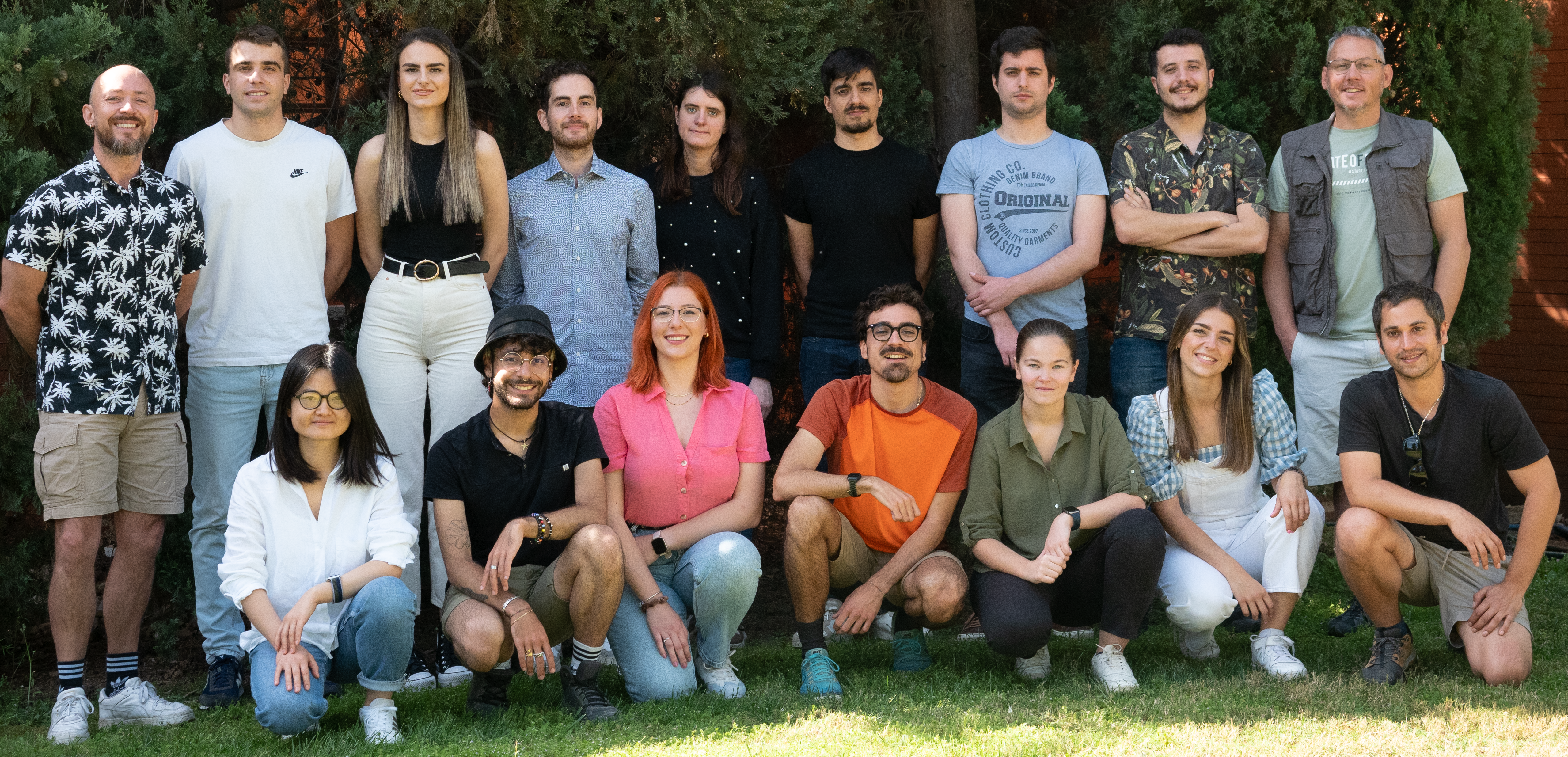
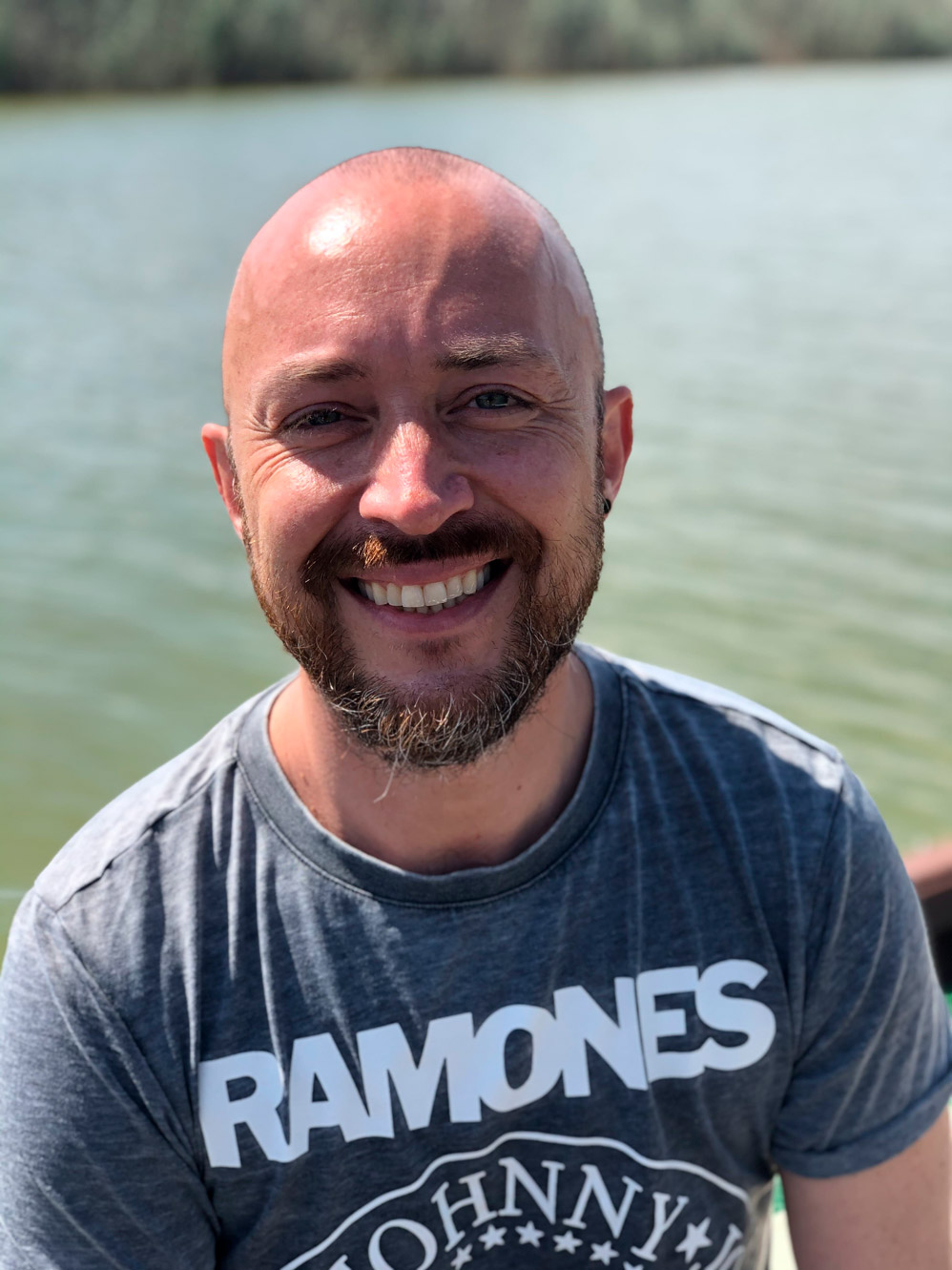
José Tomás Matus (PI)
Born in Santiago de Chile in 1979. Studied Biological Sciences at the P. Universidad Católica de Chile (PUC, 2003), where he also obtained his PhD (2008; Agricultural Sciences) in the field of plant nutrition and physiology, studying the genetic regulation of flavonoid synthesis in grapevine. Postdoctoral training in the laboratory of Dr. José Luis Riechmann, at the Center for Research in Agricultural Genomics (CRAG), studying reproductive organ development in Arabidopsis through the analysis of correlated transcription factor genome-wide binding (ChIP-Seq), transcriptomic and proteomic data, while continuing studies on transcription factors controlling secondary metabolism in grape. In 2010, was awarded a EMBO long term-postdoctoral fellowship. Tom has been awarded with the Ramon y Cajal program and since 2019 is Principal Investigator at the I2SysBio, in Valencia, where he started the ‘Transcriptional Orchestration of Metabolism’ Group at UV. He is also devoted to wine tastings. Twitter account @jtmatus
Other roles
Chair of the GRAPEDIA Initiative (Grapevine Genomics Encyclopedia, funded by a COST Innovators Grant
Management Committee Member of the Integrape COST ACTION (CA17111).
RESEARCHER ID G-3195-2016
Profile at Research Gate
Reviewer profile at Publons
ORCID 0000-0002-9196-1813
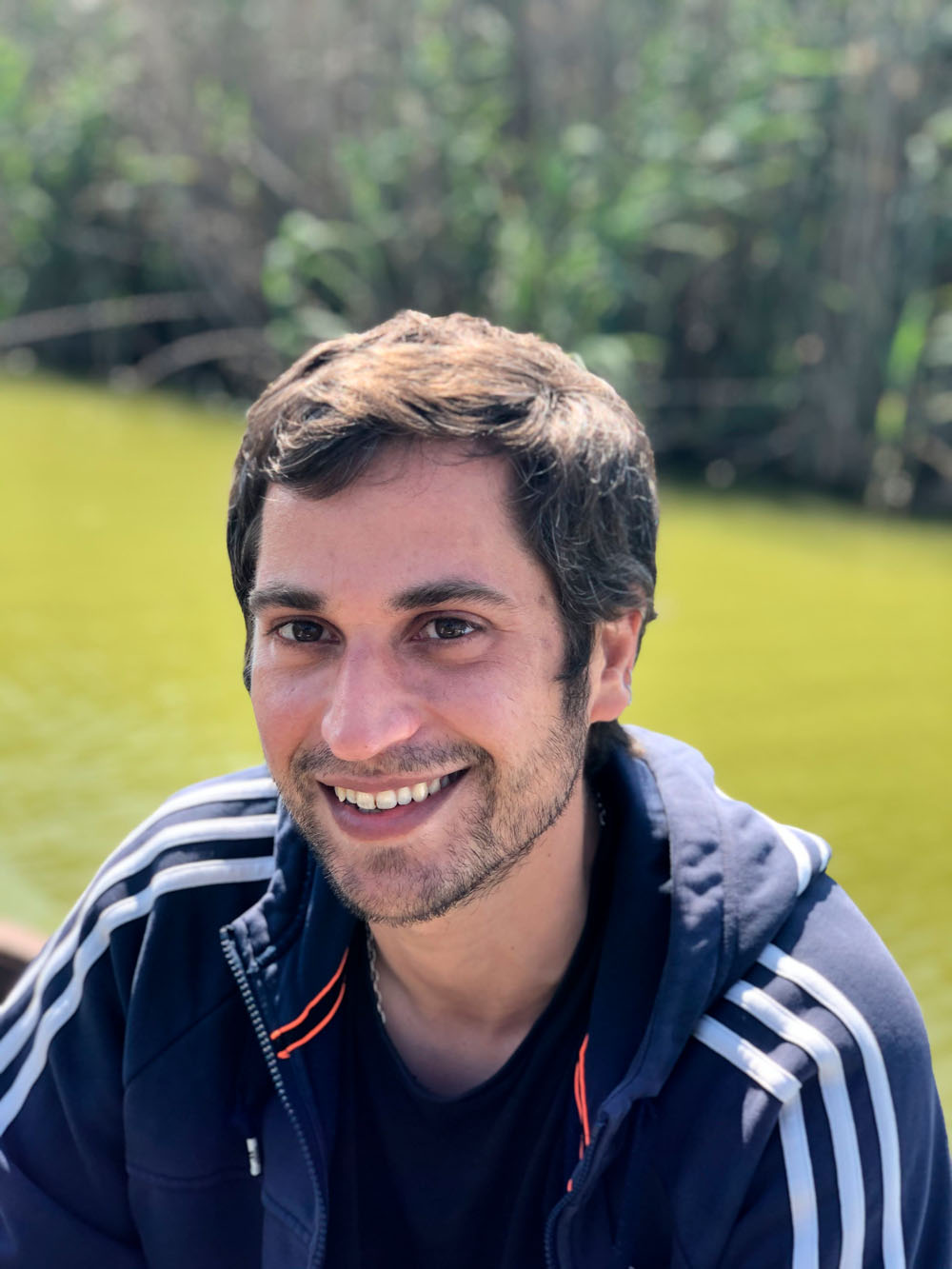
Pablo Romero, MSc (Lab Technician)
Pablo graduated from Biotechnology Engineering at University of Santiago de Chile (USACH) in 2015 and conducted his Master’s Degree in Plant Cellular and Molecular Biotechnology at IBMCP (Valencia) in 2017-2018. His work in the lab is supported by a contract signed with a private industry involved in breeding of medicinal cannabis. Pablo spears some time also working as a translator of patents and technology transfer documents and has been involved in dissemination activities towards the correct use of medicinal Cannabis. Follow his twitter account @Mazterdog
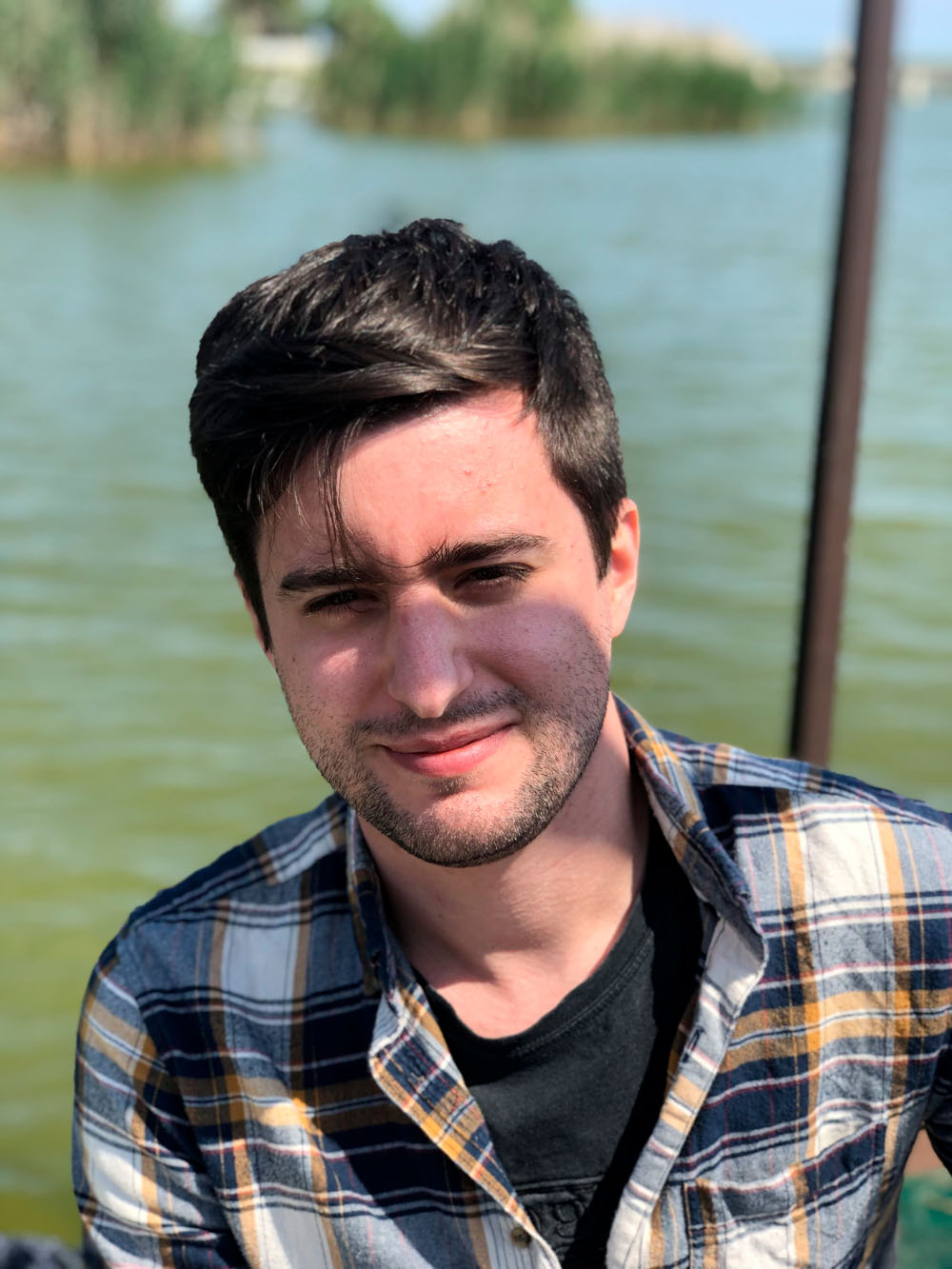
David Navarro, PhD (Postdoc)
David is from Valencia. He studied Molecular Biology at Cardiff University and also did his PhD in the same University. Obtained the Bioinformatic’s Master’s degree at University of Valencia, where he achieved the recognition as best Master thesis while working at TomsBioLab. He is the leading author of the Grape Gene Reference Catalogue and the Guidelines for manual curation of gene annotations using Apollo. He will join as postdoc in the ‘Good Vibes’ project funded by the Human Frontiers Science Program. twitter: @david_np91
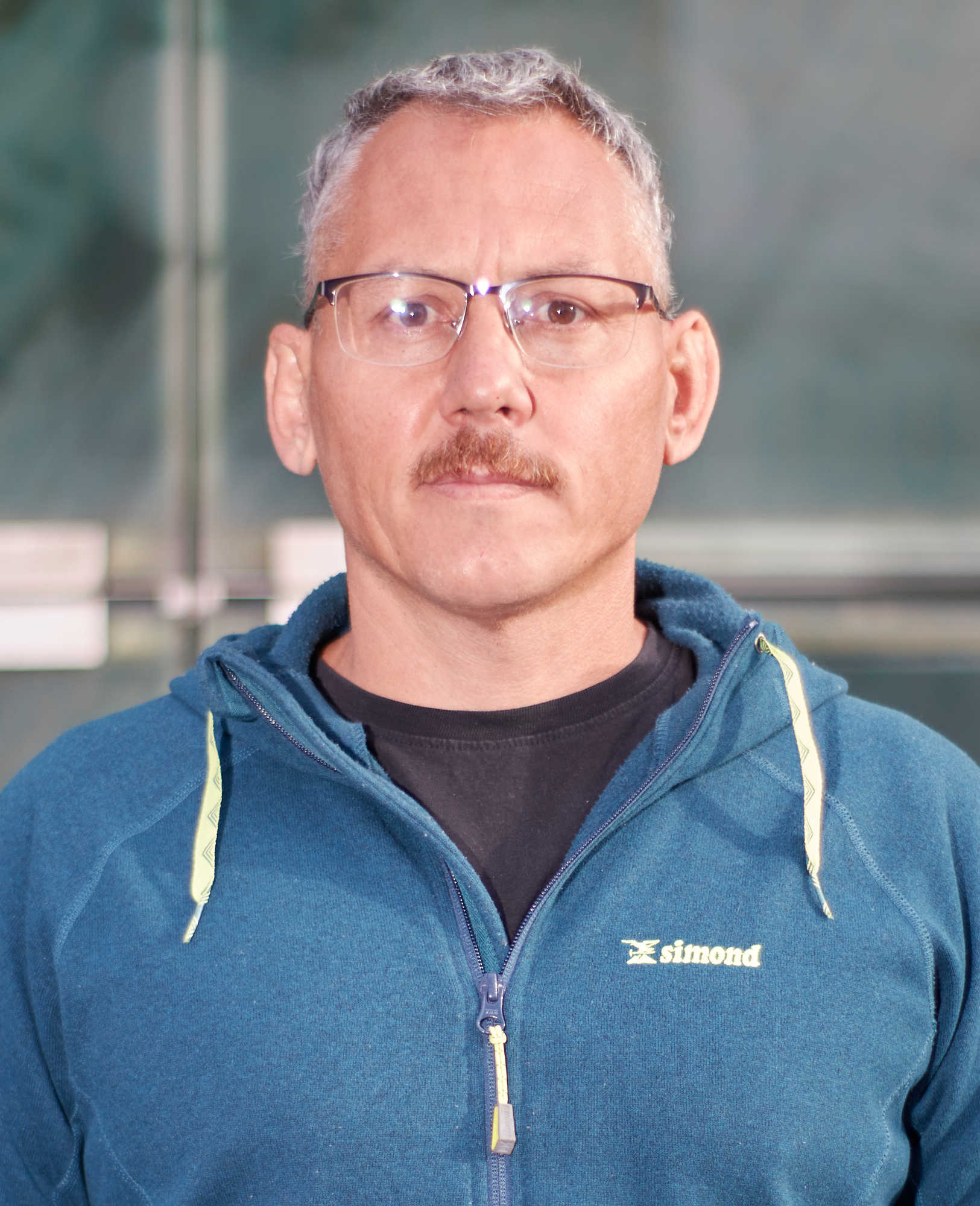
Gastón Pizzio, PhD (Postdoc)
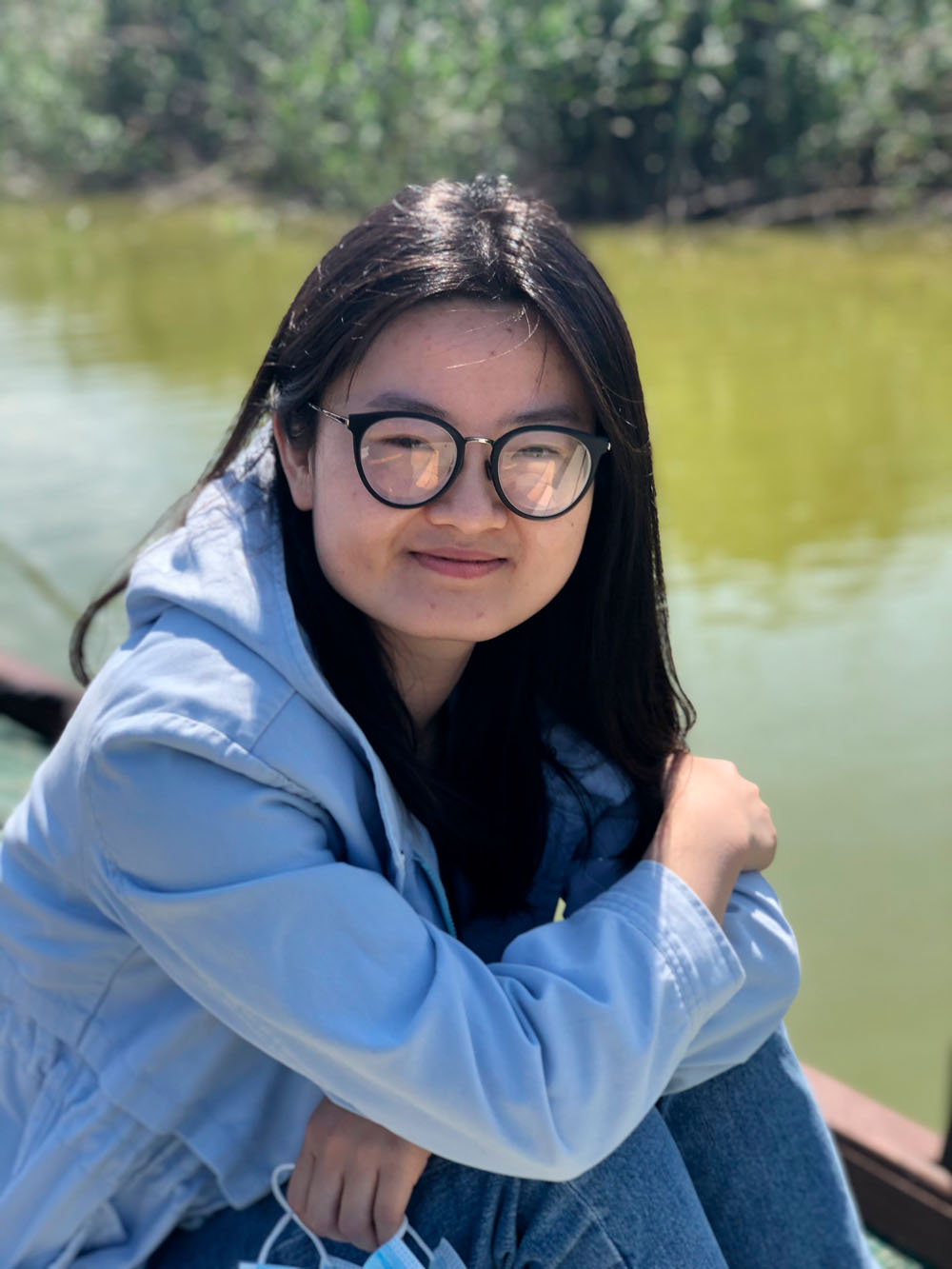
Chen Zhang, MSc (PhD student, CSC Scholar)
Chen comes from Shaanxi, China. She studied Horticultural Science and did her MSc degree in Pomology at the Northwest A&F University. In the Lab, she is transversally involved in many projects, supporting the experimental work to validate our computational resources. In her PhD, she is interested in the regulation of specialized metabolism and its relation to light responses, in particular she is interested in the evolution of gene regulatory networks of terpenes, anthocyanins and flavonols in several plant species. Follow her twitter account @ChenZhang5859

Luis Orduña, MSc (PhD student, FPI Scholar)
Luis studied Biotechnology at University of Valencia and did his M.Sc. in Bioinformatics in the same University. His interests in the lab are related to determining gene regulatory networks of transcription factors. Luis is a real sport’s fan, and practices football, basketball, sky and tennis! Follow his twitter account @luis_orduna96
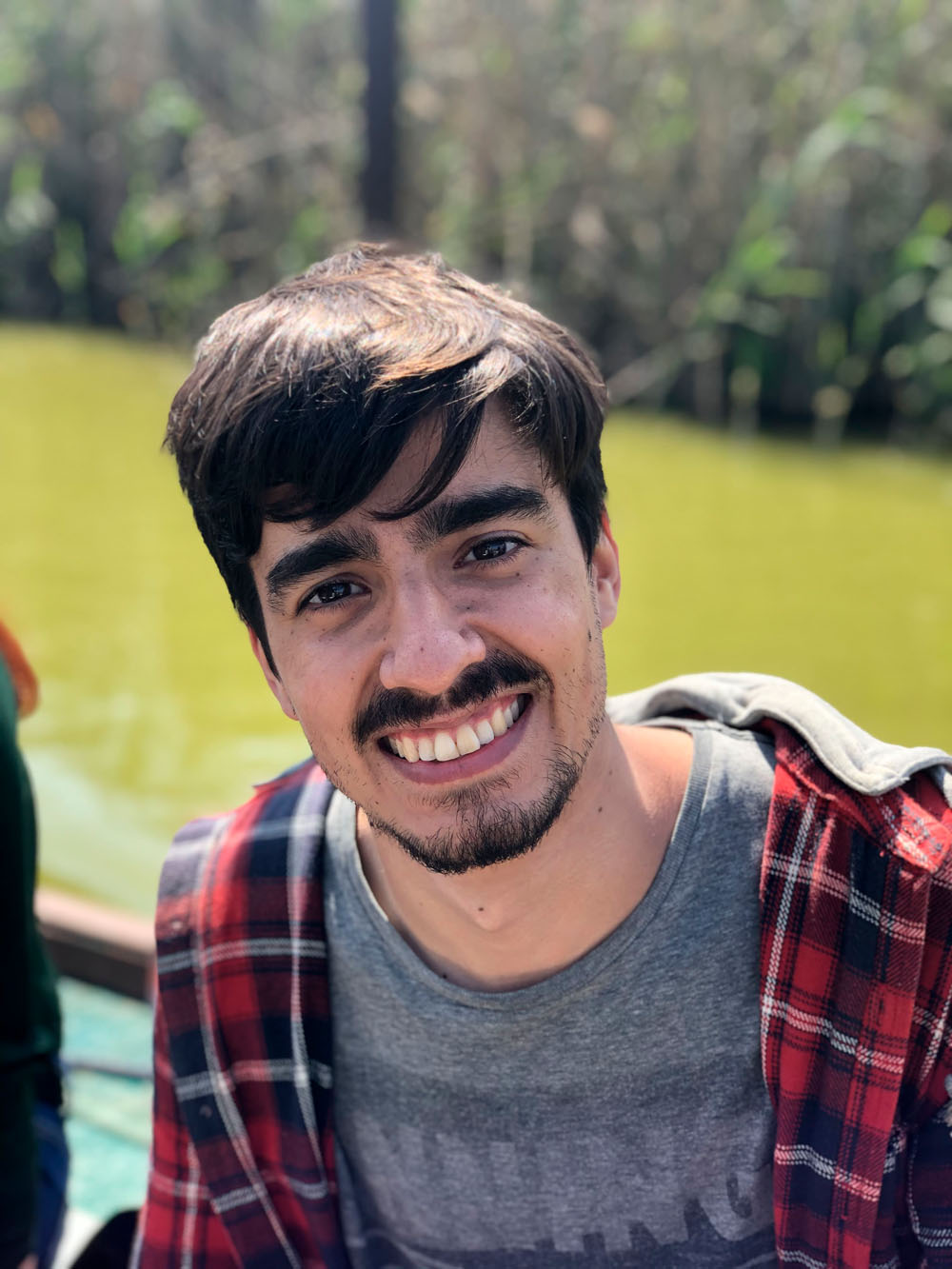
Antonio Santiago (PhD student)
Antonio is from Badajoz. He did his M.Sc. degree in Bioinformatics (UV) in transcriptome assembly and genome annotations using Illumina and PacBio data in mulberry. He is now joining the ENIGmA project funded by the Prometeo-GVA Program as a PhD student.

Jone Etxeberria (PhD student)
Jone studied Marine Sciences and Biotechnology at the Catholic University of Valencia and is conducting her M.Sc. in Research and Development in Biotechnology and Biomedicine at the University of Valencia. Her interests in the lab are related to the production of secondary metabolites in Artemisia annua such as artemisinin and other metabolites. She will join as PhD in the ‘Good Vibes’ project funded by the Human Frontiers Science Program. Jone has a lot of different interests such as football, diving, roller-blading and horse riding.
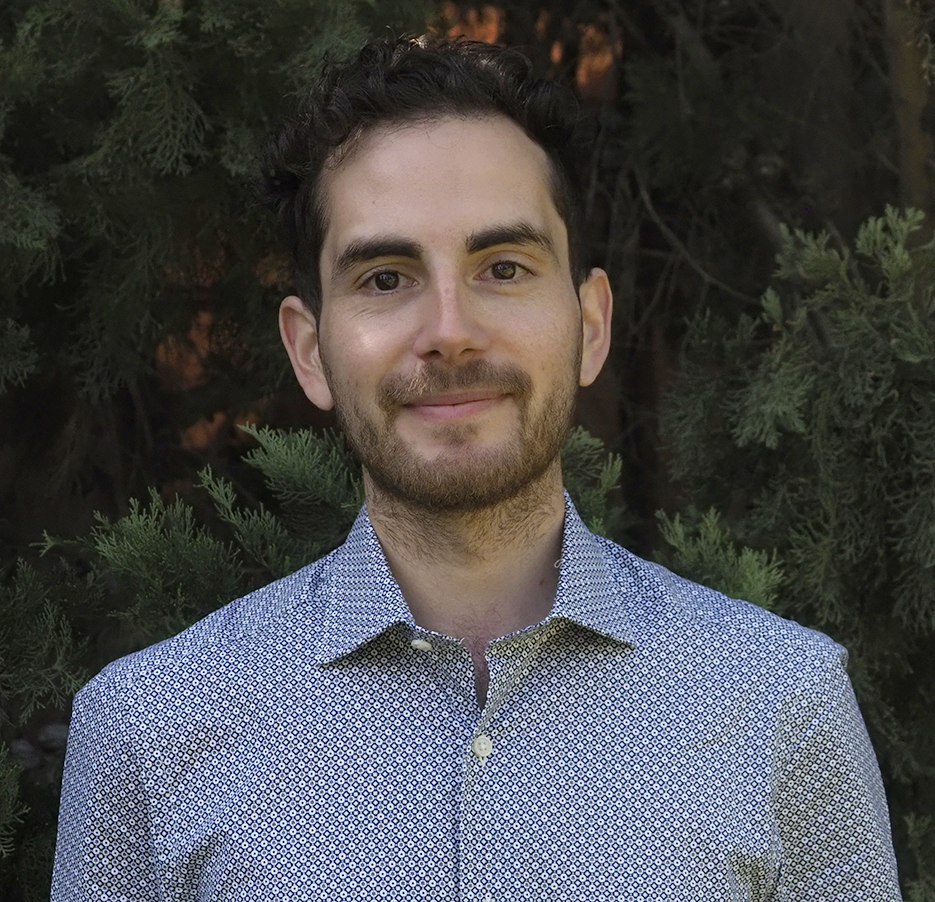
Álvaro Vidal Valenzuela (PhD student)
Álvaro is a Chilean biochemist graduated from the Pontificia Universidad Católica de Valparaíso. He is currently developing his doctoral thesis in Plant Biotechnology at the University of Trento (C3A Program – Centro Agricoltura, alimenti, ambienteItaly), in a joint project called «GrapeSysTress» between our laboratory, the plant biotechnology lab of the Foundazione Edmund Mach (FEM) and the C.I.I. of Viña Concha y Toro (Chile). The main objective of his work is to generate stress-resistant vines using CRISPR-editing systems and cisgenics.
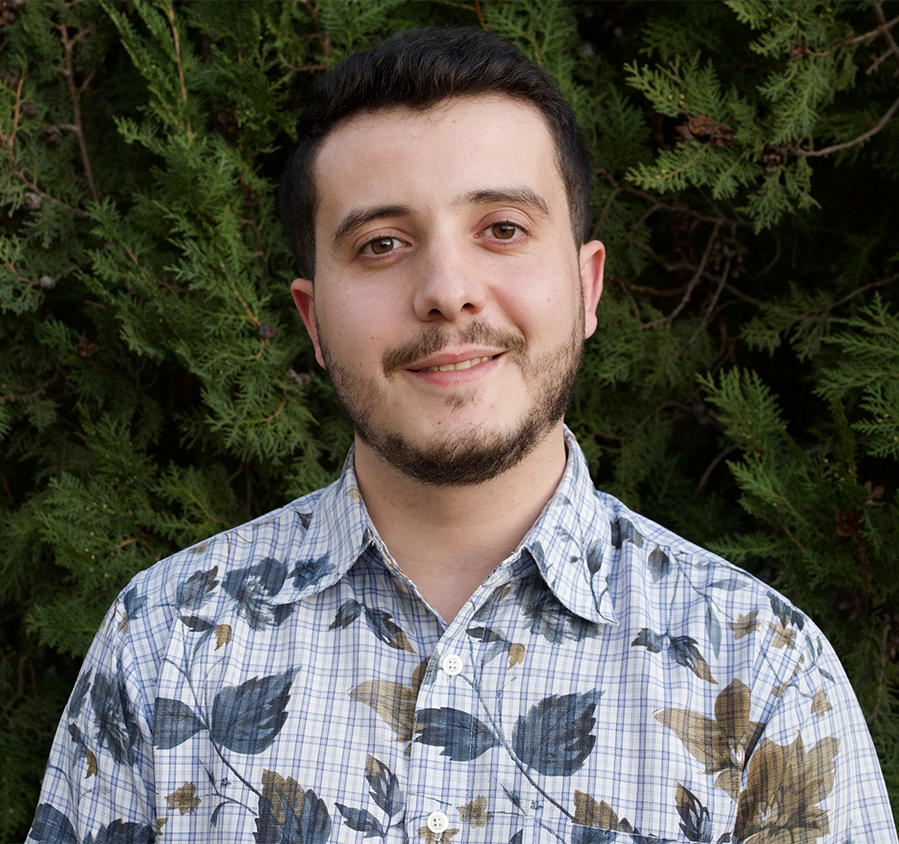
Julián García del Pozo (Master Student UPV)
Julian obtained the dual degree title of Laboratory Technician in Clinical and Biomedical Diagnosis from IES Leonardo Da Vinci in Alicante. He completed his degree in Biotechnology at University of Valencia (UV), conducting his final thesis with us on the study of genes with potential to introduce the cannabinoid pathway into glandular trichomes. Currently, he is pursuing a Master’s in Molecular and Cellular Plant Biotechnology at Polytechnic University of Valencia (UPV) through the Institute of Molecular and Cellular Biology of Plants (IBMCP), working in ABA receptors in species of phytopharmaceutical interest. His main interest lies in the study, understanding, and manipulation of plant secondary metabolism pathways, as well as their mechanisms of chemical and hormonal regulation.
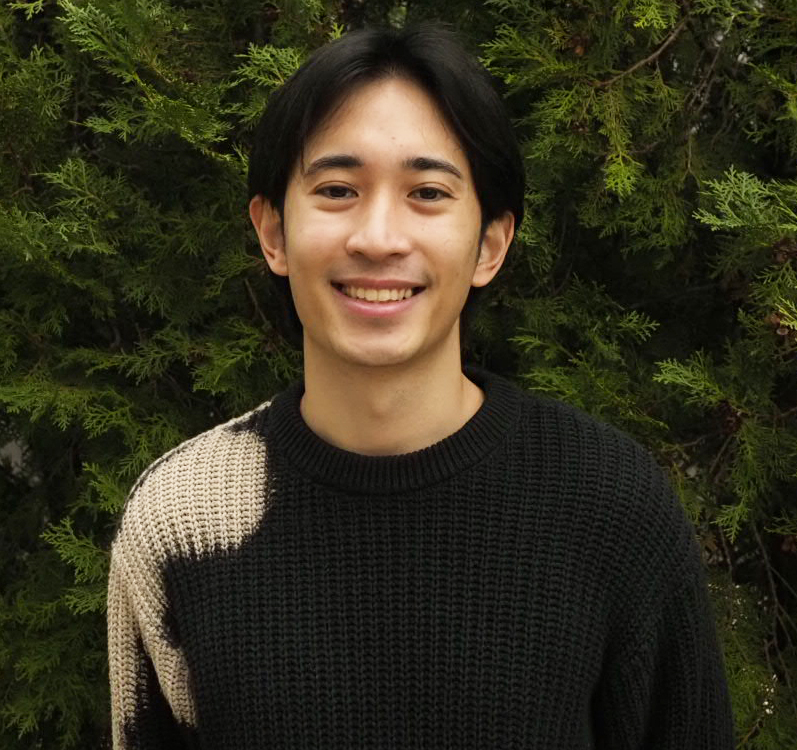
David Martín de los Reyes (Master Student UCV)
David is from Phillipines. He did his Bachelor’s in Agriculture in Japan (Kyushu University) and conducted his thesis on gene cloning of two hydrolytic enzymes from an oleaginous yeast (Lipomyces starkeyi) for heterologous expression and characterization in E. coli. Currently he is studying a Masters in Marine Biotechnology in Catholic University of Valencia, and his current interests are cultivating microalgae for the production of interesting secondary metabolites for food, cosmetics, or pharmaceutical use.
Master Program ERASMUS + Exchange students
Vanessa Duarte
August 2023-
MSc in Functional Biology and Biotechnology of Plants
Faculty of Sciences at the University of Porto (FCUP)
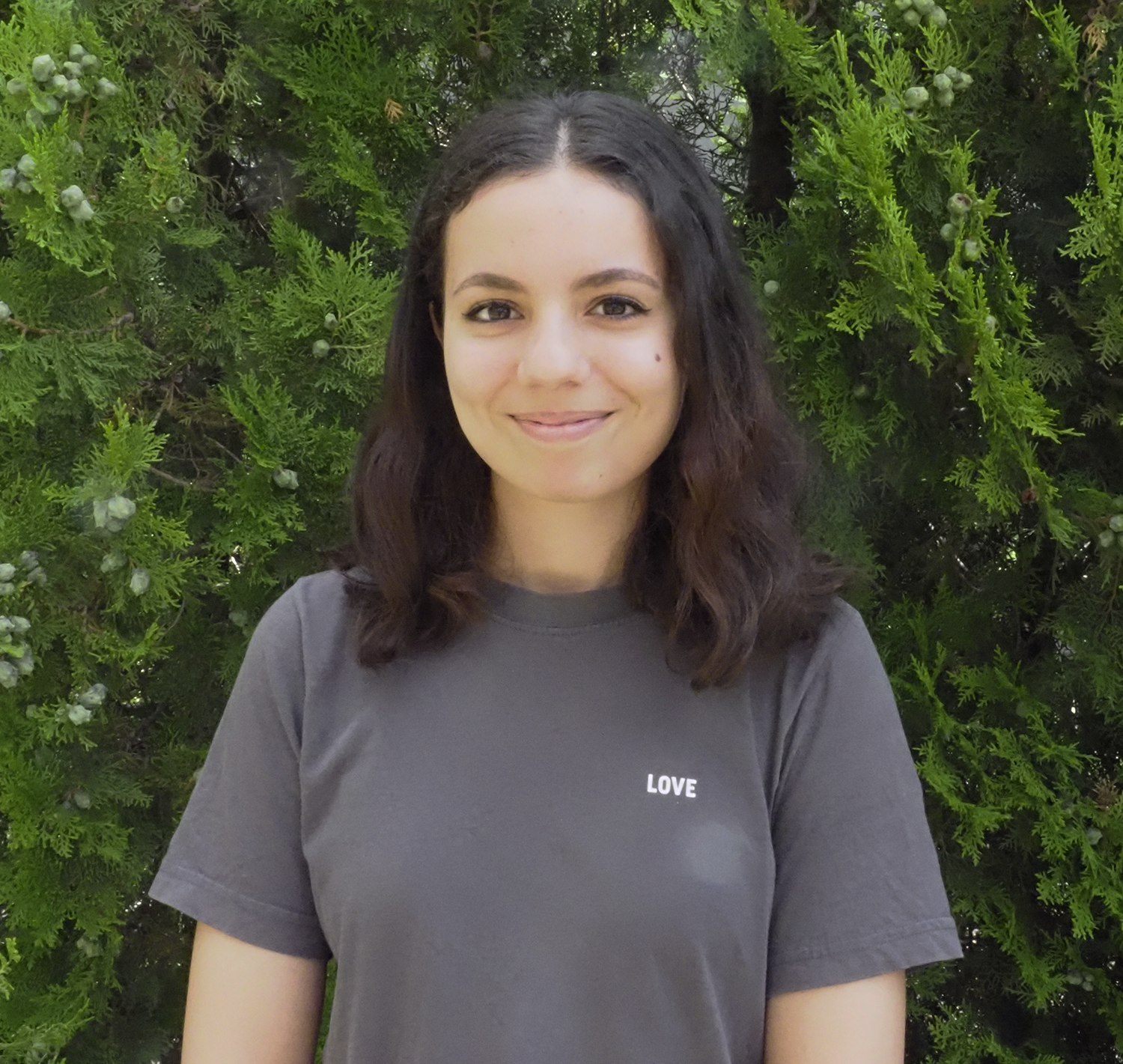
Hafsa EL IDRISSI MOUBTASSIM
May 2023- August 2023
Master's degree of Biology and Health, Integrative Biology and Physiopathology
Université Clermont Auvergne, France.
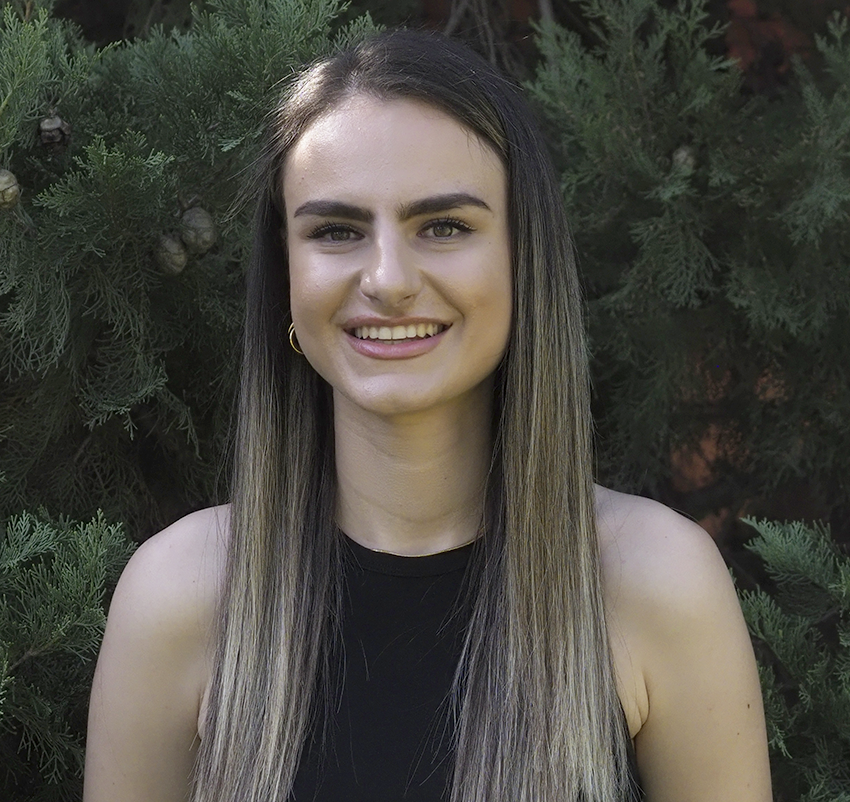
Anastasia Panagiota Gkiouzeli
March 2023- September 2023
Integrated MSc from the Agricultural Sciences. Hellenic Mediterranean University, Greece.
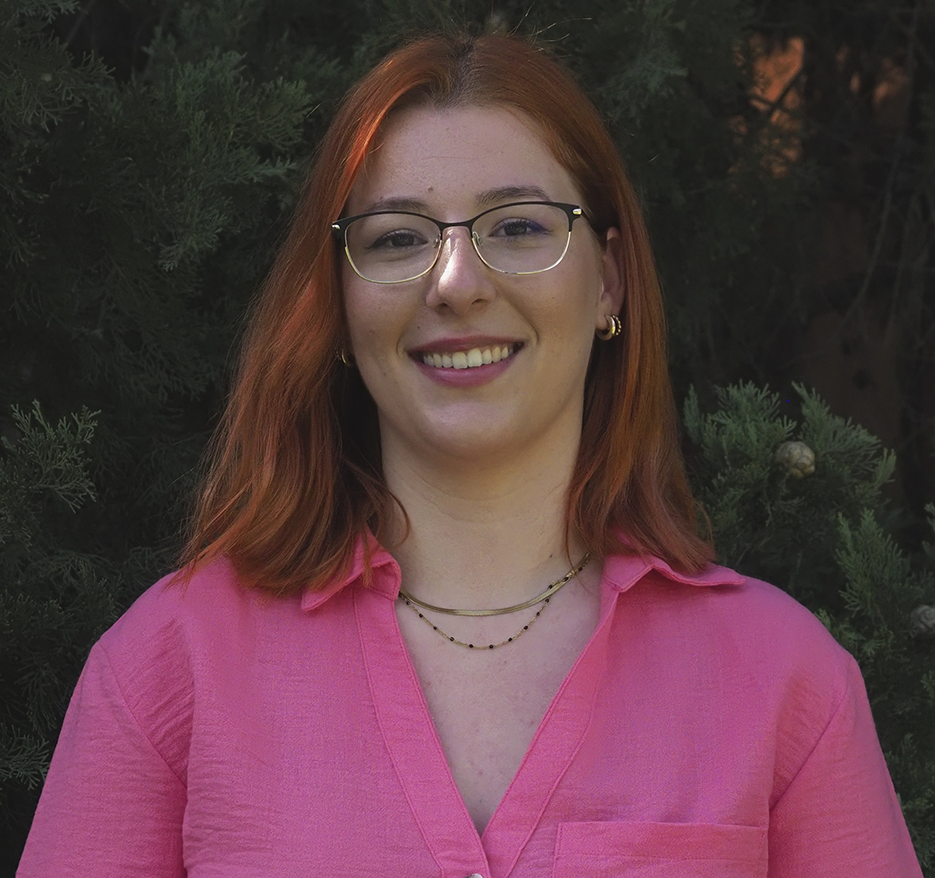
Eleni Vogiatzi
March 2023- September 2023
Integrated MSc from the Agricultural Sciences. Hellenic Mediterranean University, Greece.
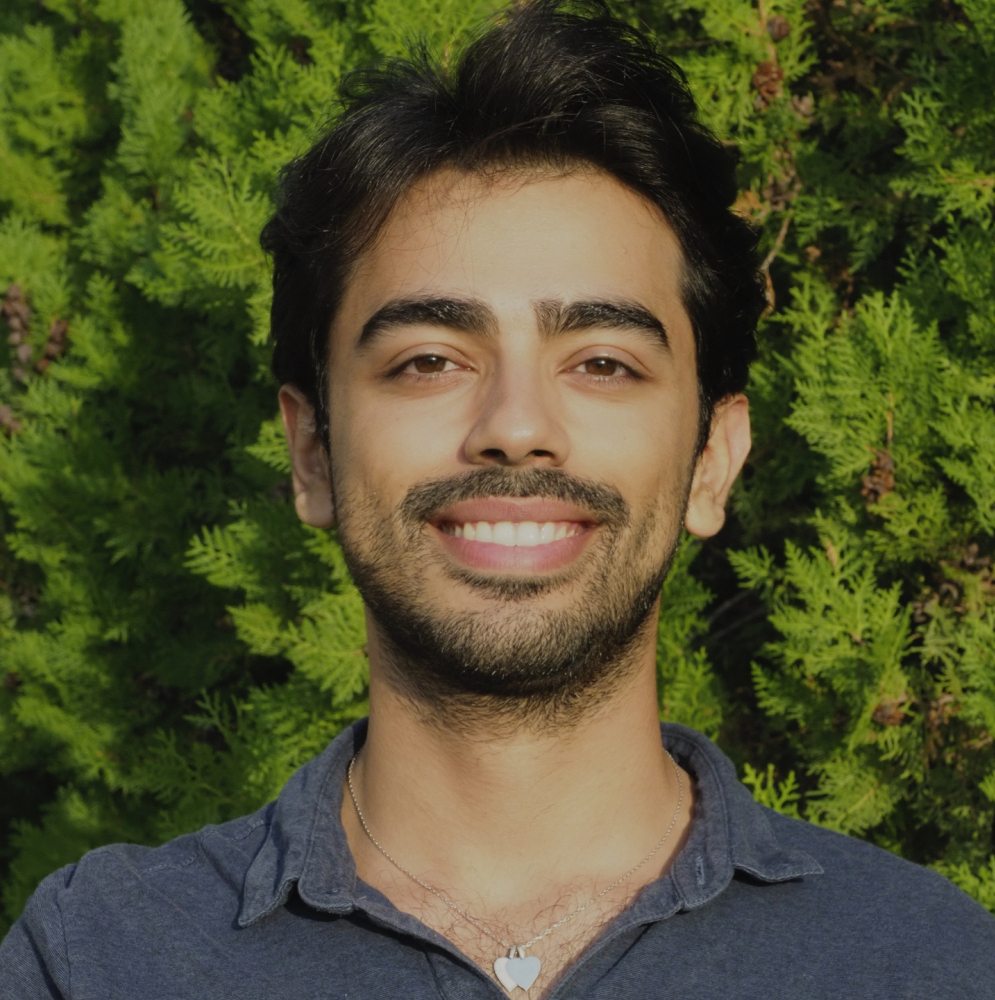
Erdogan Senol
September 2022. Bachelor of Science. Molecular Biology and Genetics Department, Izmir Institute of Technology IYTE, Turkey
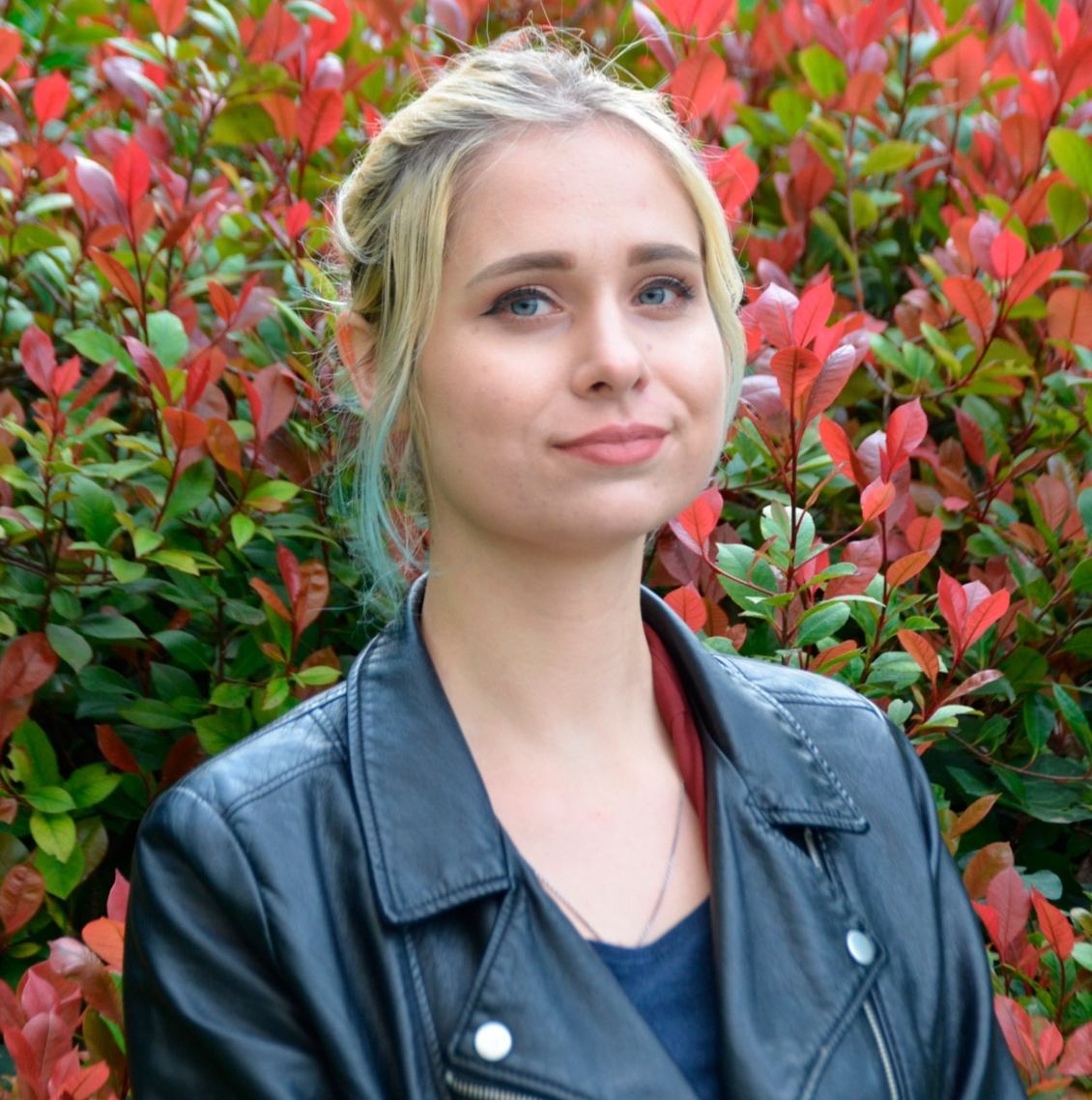
Aleksandra Leska
2018-2019. MSc degree in the International Faculty of Engineering and Biotechnology (Lodz University, Poland).
Invited Researchers/ Professors
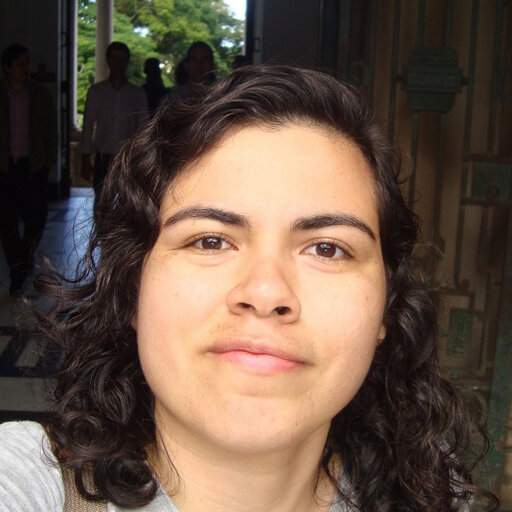
Dr. Elem Tamirys dos Santos Caramês
March 2024- February 2025
Dr. Carames is from University of São Paulo, Brasil. She has recently acquired the FPSE grant fro a long-term abroad internship in our lab. She investigates the interaction between native and industrial fusarium isolates and barley and for which she collected transcriptomics and metabolomics data from various cultivars. At the TOMSBio lab she will be implementing multi-omics integration tools, also in collaboration with Dr. Ana C0nessa.
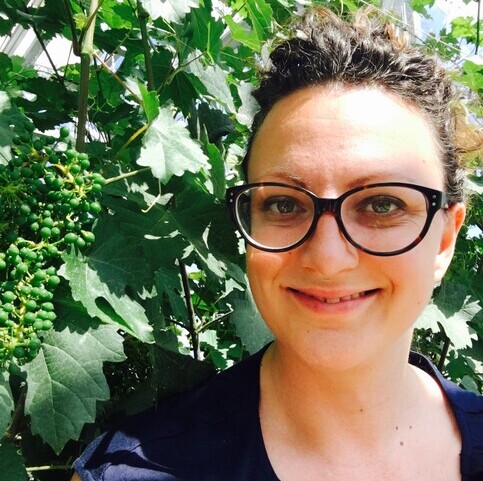
Dr. Stefania Savoi
November 2021- SUPAgro Montpellier/University of Torino
During her stay at TOMSBio Lab (funded by a COST Action CA17111 STSM), Dr. Savoi reanalyzed two previous transcriptomics/ metabolomics datasets (Savoi et al. 2016; Savoi et al., 2017) and performed gene co-expression network analysis for identifying correlated gene modules and metabolites. These new results were used as basis for a a newly developed app, named TransMeta DB, found in the Vitis visualization platform (Vitviz) in open access mode. Finally, we drafted a perspective article describing these tasks (under review).
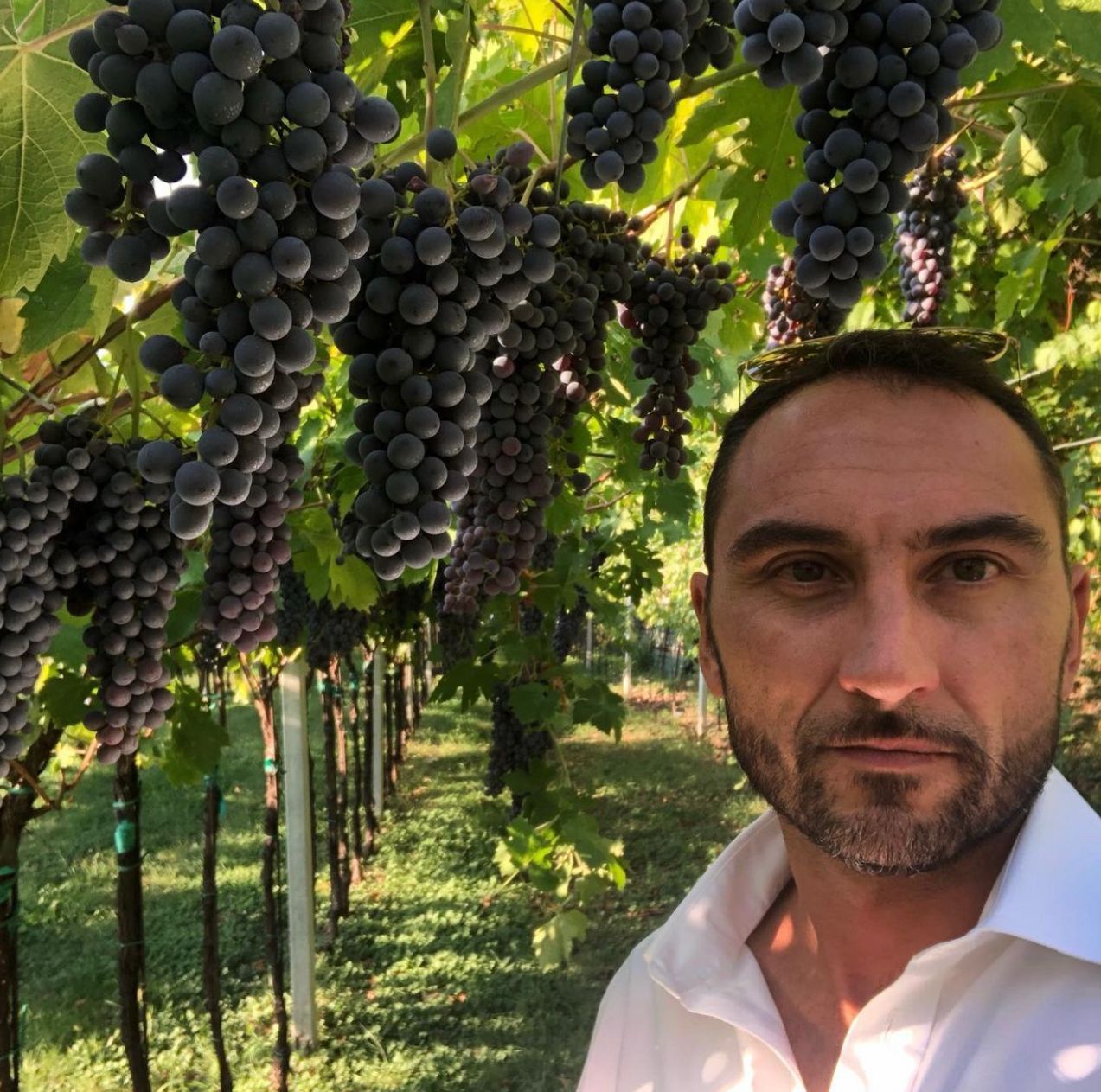
Dr. Alessandro Vannozzi
July 2021- University of Padova
During Dr. Vannozzi's stay (funded by a COST Action CA17111 STSM), we analysed and compared all DAP-Seq data generated in our teams. We drafted a 'Vademecum' article on the best practices for DAP-Seq, reviewing the analytical procedures to be used, and hypothesizing tools suitable for validating the experimental results that allow the researcher to have an idea of the quality of the data obtained. Dr Vannozzi also participated in the final writing of a research article for the Cistrome evaluation of MYB13/14/15 using DAP-seq and gene co-expression networks (Orduña et al., 2021). Finally, Alessandro joined the DAP&CAT Working Group Meeting (WGM) within the COST action CA17111 entitled "Writing DAP-seq guidelines' article, Release of the Gene Reference Catalog V2.0 & New INTEGRAPE Web Design".
Undergrad Students
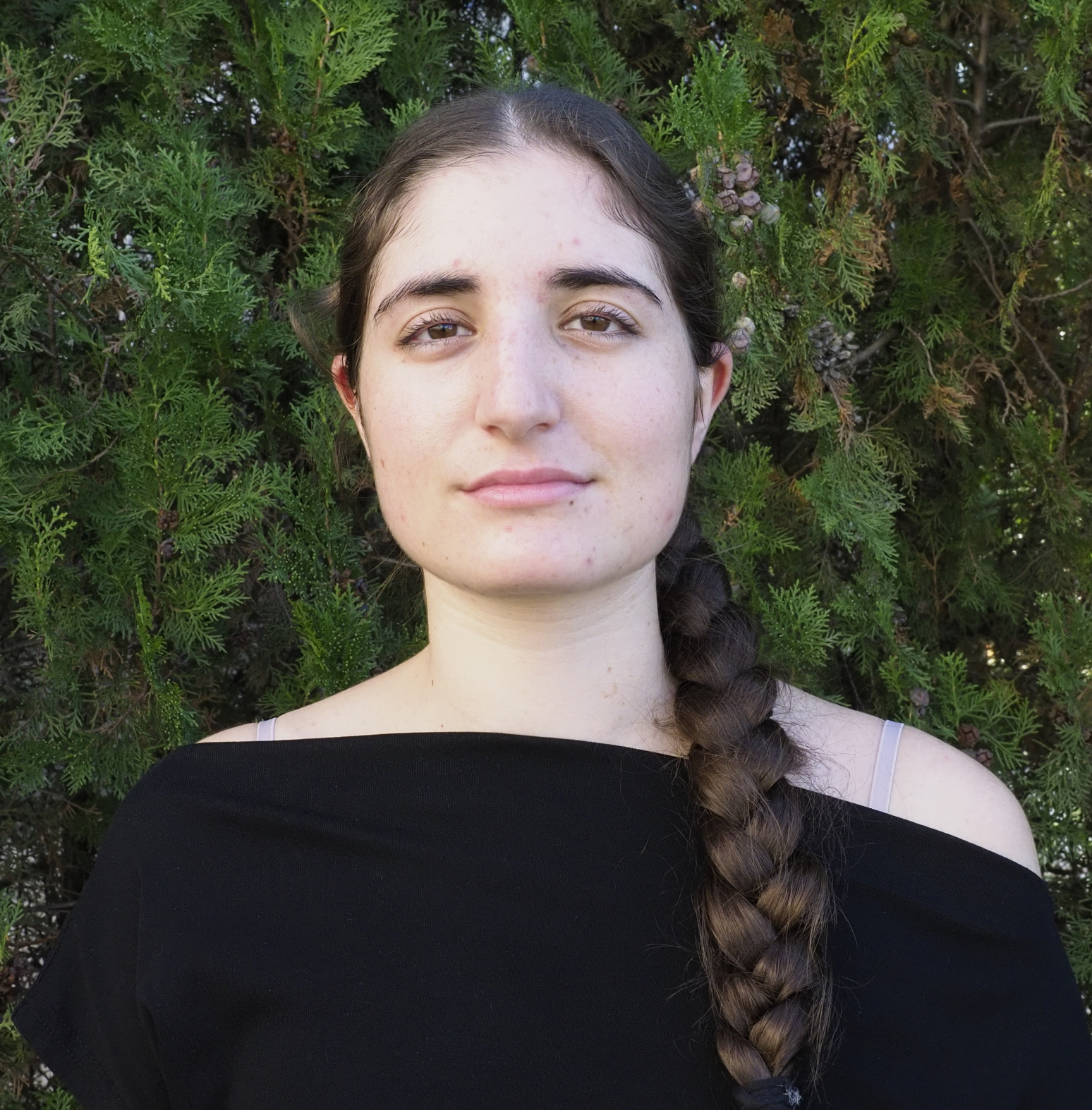
Lucía Giménez (UV)
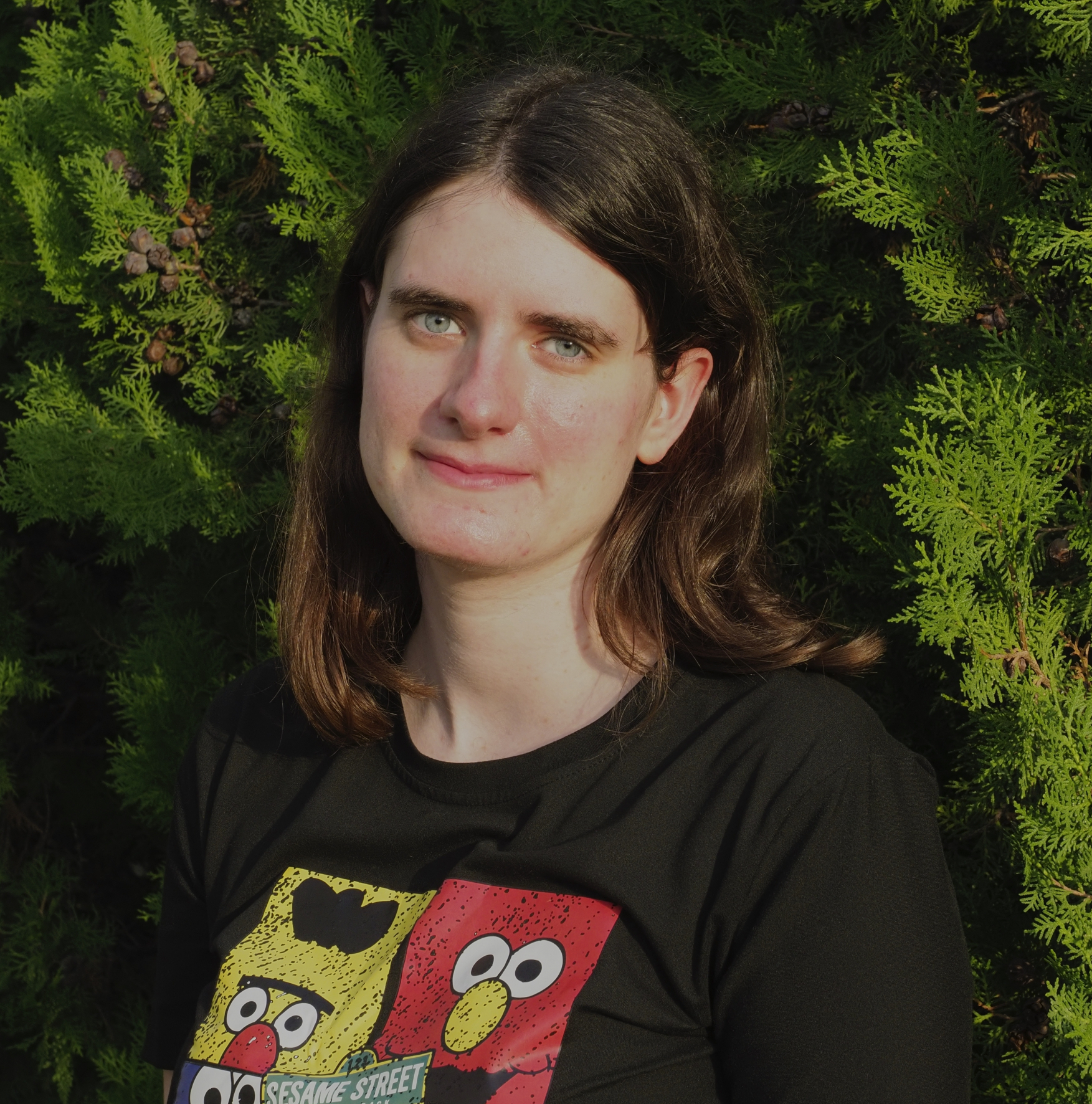
Estel.la Micó (UV)
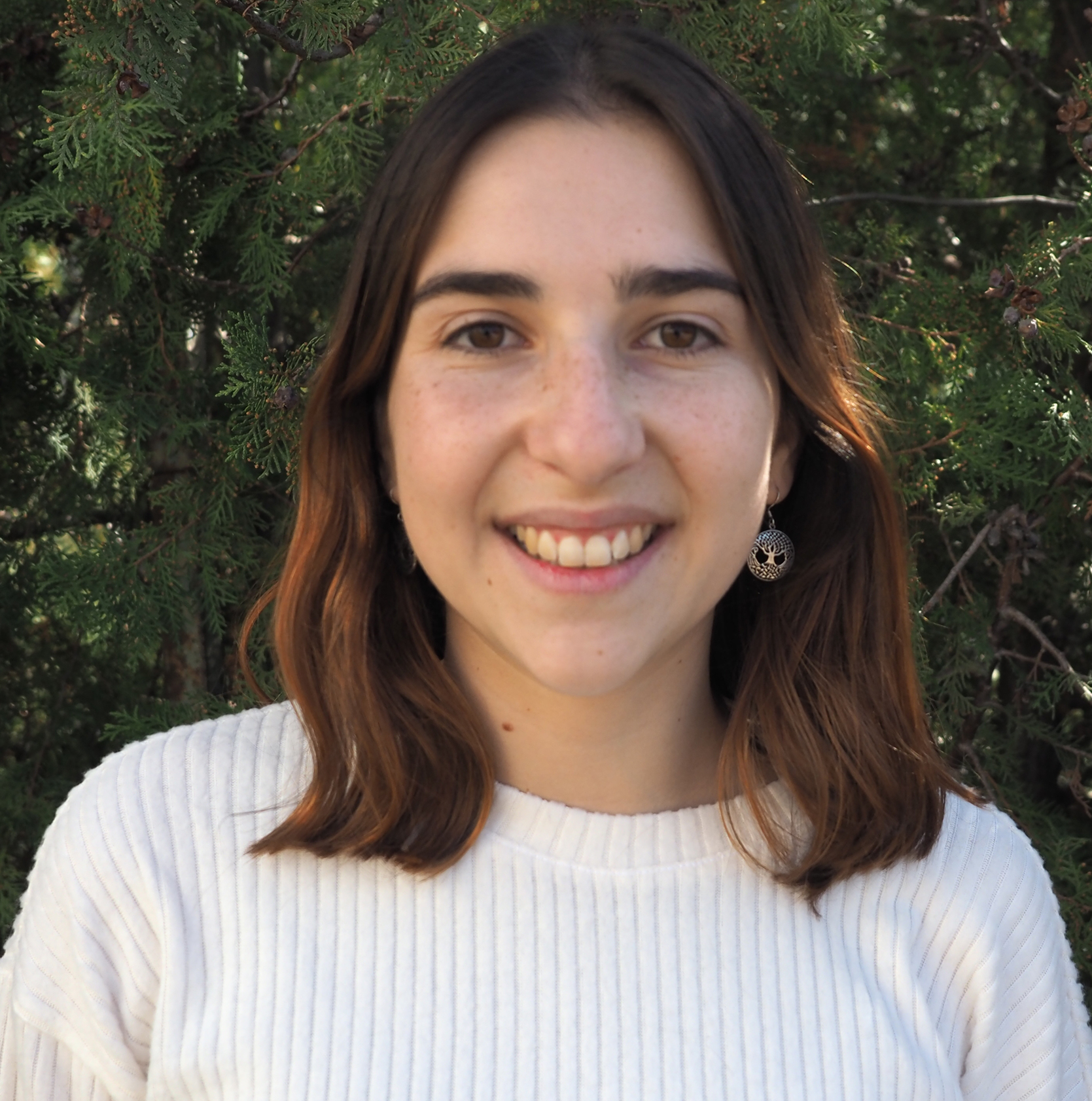
Javiera Manterola. Biotechnology. University of Santiago de Chile (USACH)
Invited Students
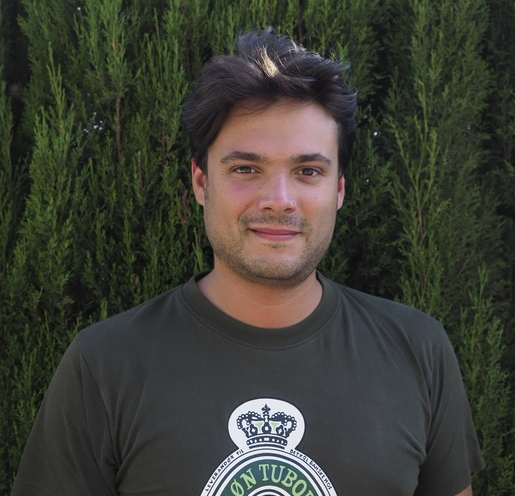
Gabriele Magon
Two Long Stays, June- December 2021/ April-October 2022
PhD Student in DAFNAE - Dipartimento di Agronomia, Animali, Alimenti, Risorse naturali e Ambiente at the University of Padova, Italy (under the supervision of Alessandro Vannozzi). In our lab, Gabriele is performing DAP-seq and heterologous over-expression in tomato and Arabidopsis to characterise grapevine TFs.

Ana Libertad García
Long Stay March- July 2022-
PhD Student at Universidad de La Laguna, Canary Islands - Instituto de Productos Naturales y Agrobiología - CSIC. In our lab, Ana is studying the effect of different agrochemicals in the production of specialised metabolites in cell suspensions of grapevine, Artemisia and other plant species.
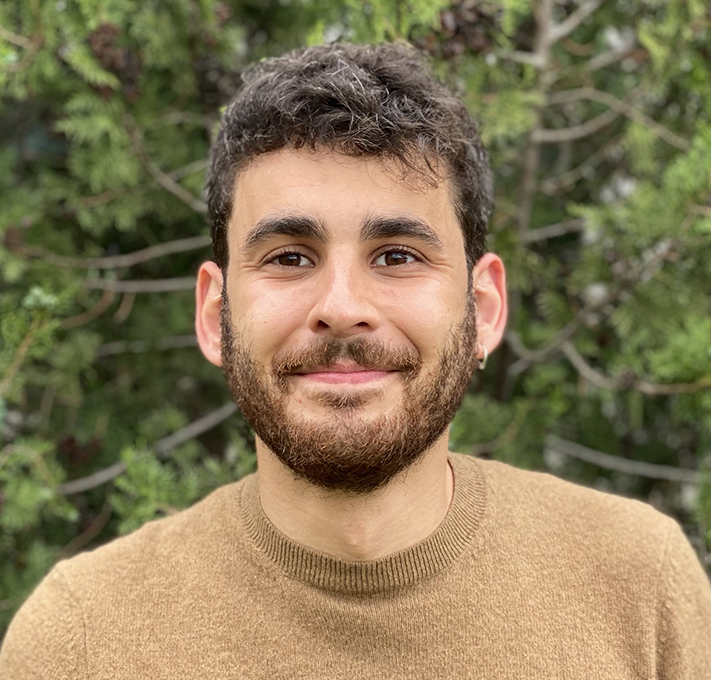
Miguel Santo Domingo
Short Stay April 2021-
PhD Student at Jordi García Mas Lab, at the Institute of Agrifood Research and Technology (IRTA, CRAG). Miguel is learning DAP-seq in our lab to characterise ripening-controlling factors in melon.
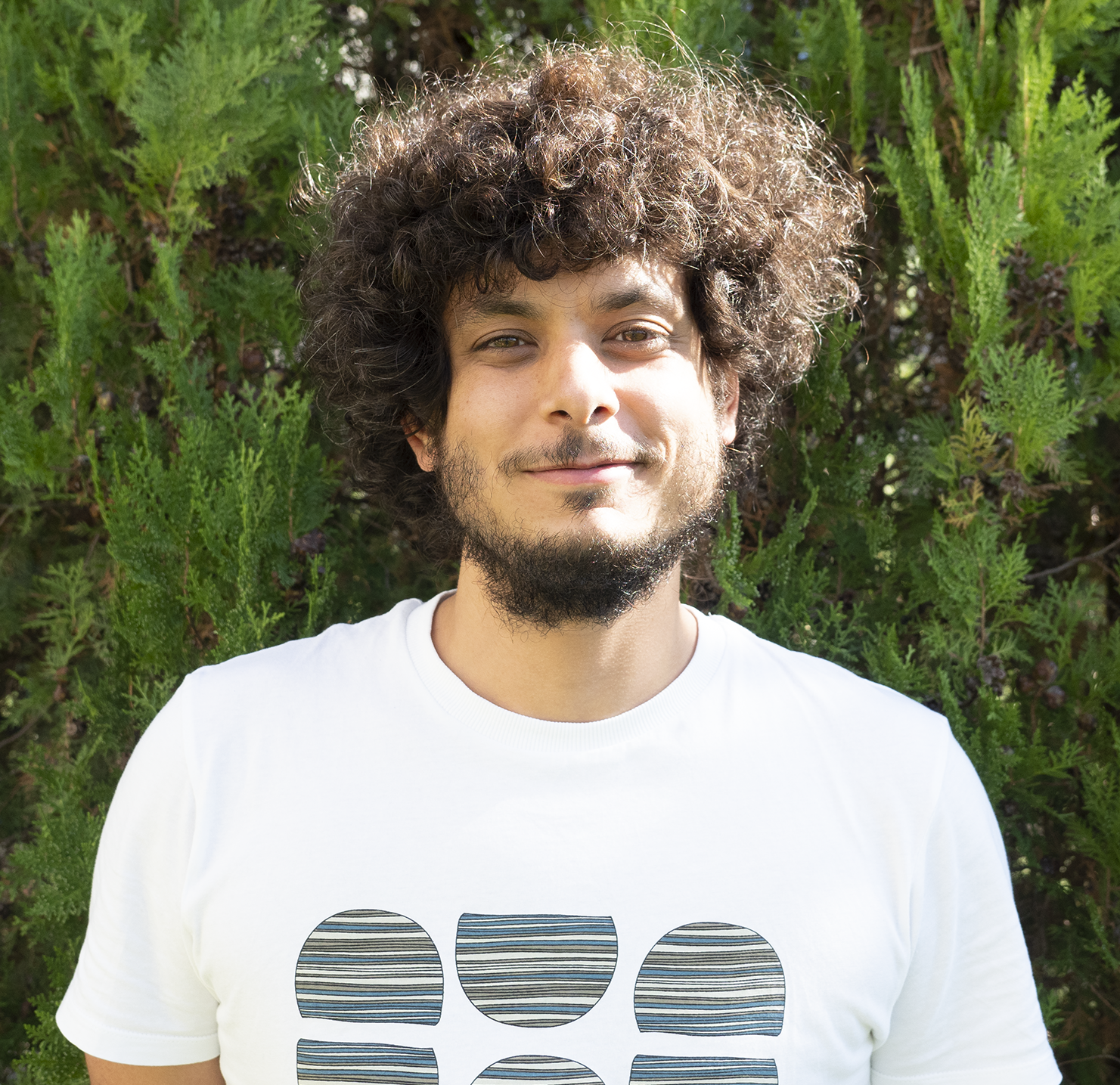
Juan Bautista Fontanet
Short Stay October 2021-
PhD Student at Centre for Research in Agricultural Genomics (CRAG, Barcelona), under the supervision of Ana Caño. In our lab, Juan is performing DAP-seq in Sorghum and Marchantia.
Past Members
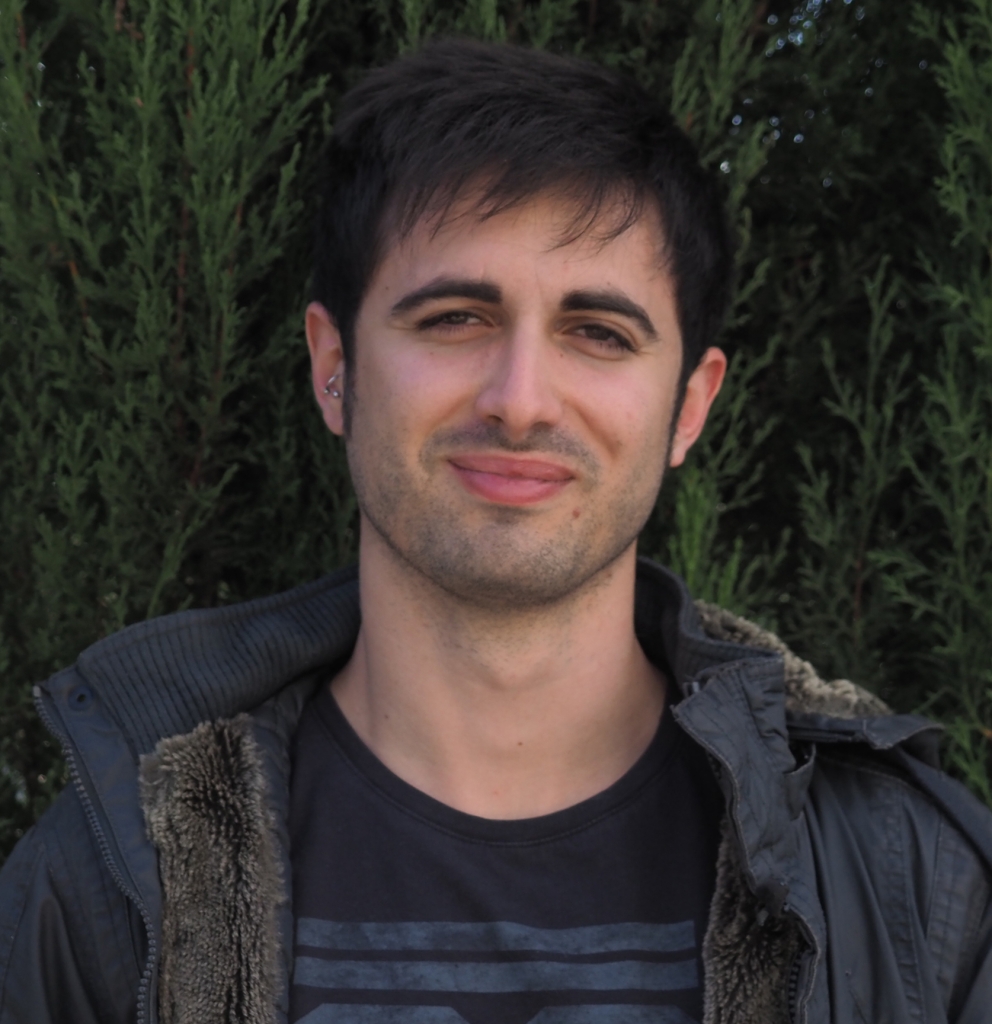
Arnau Peris is originally from Alcoy (Alicante) but graduated in Biotechnology at Universidad Rovira i Virgili (Tarragona, Spain). He is conducting his Master's degree in Bioinformatics at UniBo (University of Bologna, Italy). His interests in the lab concern gene network, RNA-seq and phylogenetic analyses. On his free time, Arnau practices sport climbing.
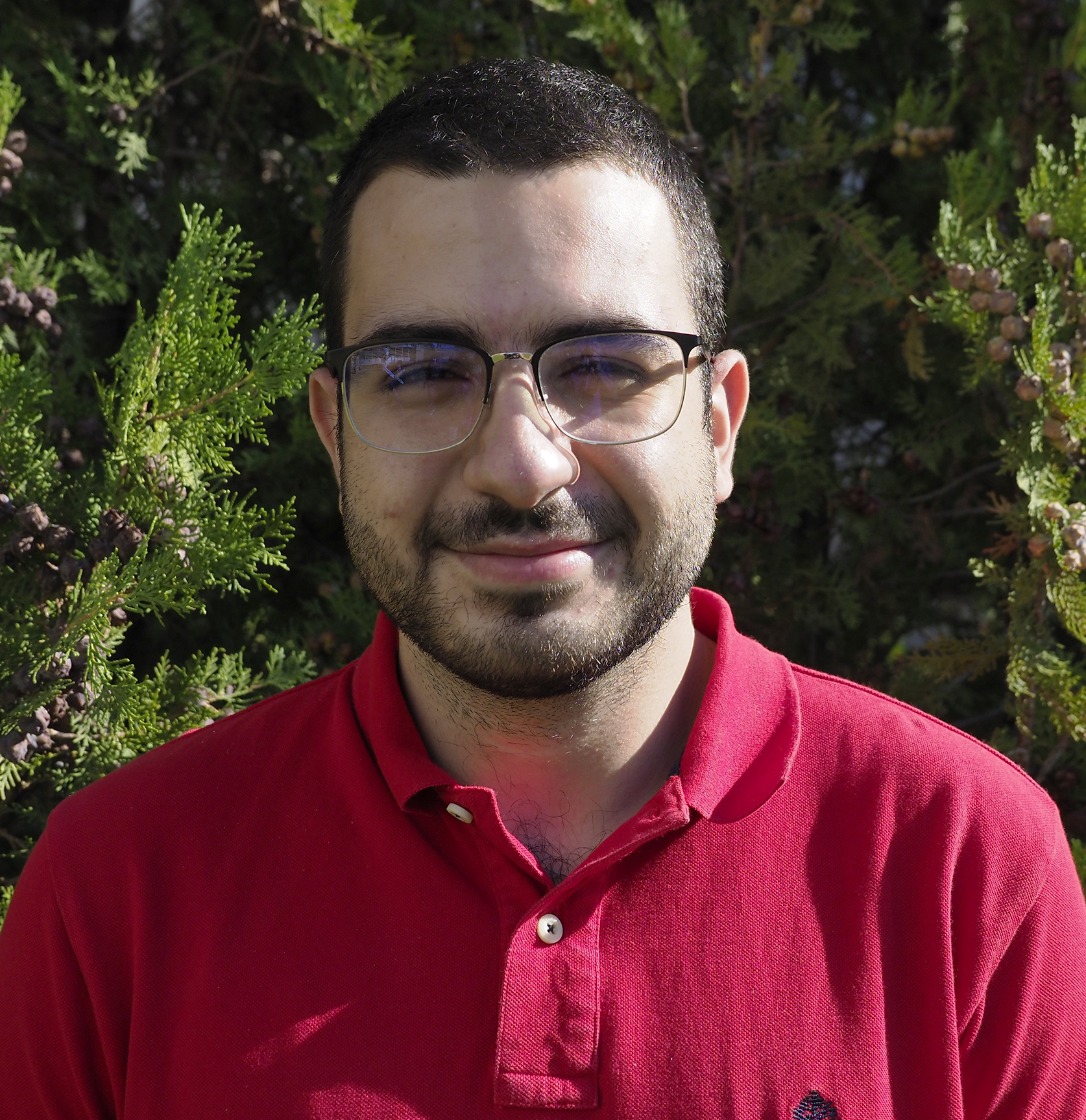
Alberto Pérez Tejeda is from Villanueva de la Serena, Badajoz. He studied Biotechnology in the University of Valencia (UV), and conducted a Master's degree in Research and Development in Biotechnology & Biomedicine (UV). He is currently doing his second Master's Program in Bioinformatics at UV. Alberto has joined TOMSBio lab this year, interested in cannabinoid and terpenoid regulation.
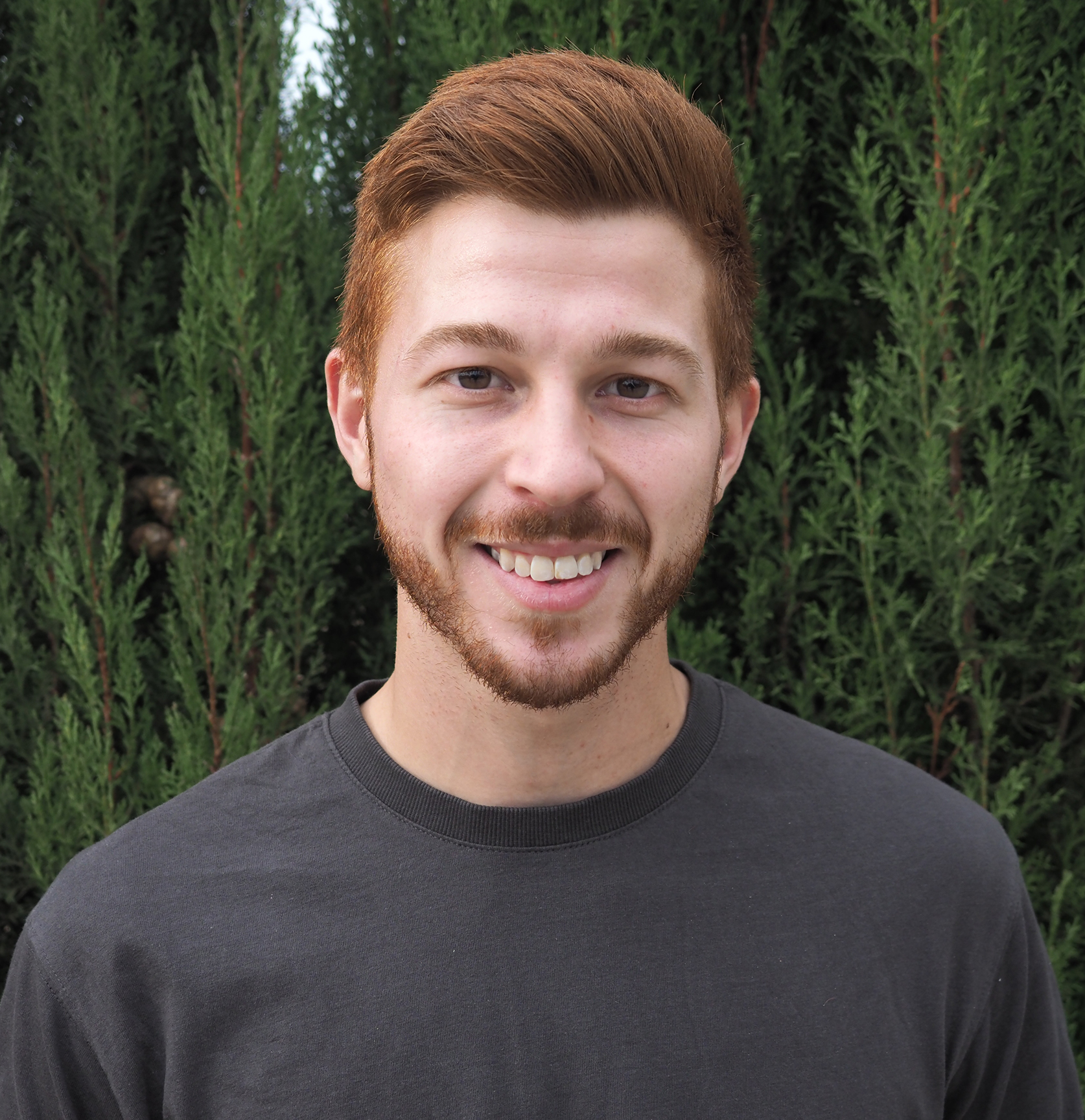
Ángel Díaz is from Tenerife (Canary Islands). He studied Biotechnology in the University of Valencia, where he joined TOMSBio lab as an undergraduate student. He is now in the MSc Degree in Plant Genetic Improvement (Master Interuniversitario en Mejora Genética Vegetal) from UPV - Instituto Universitario de Conservación y Mejora de la Agrodiversidad Valenciana (COMAV). Follow his twitter account @Adg340
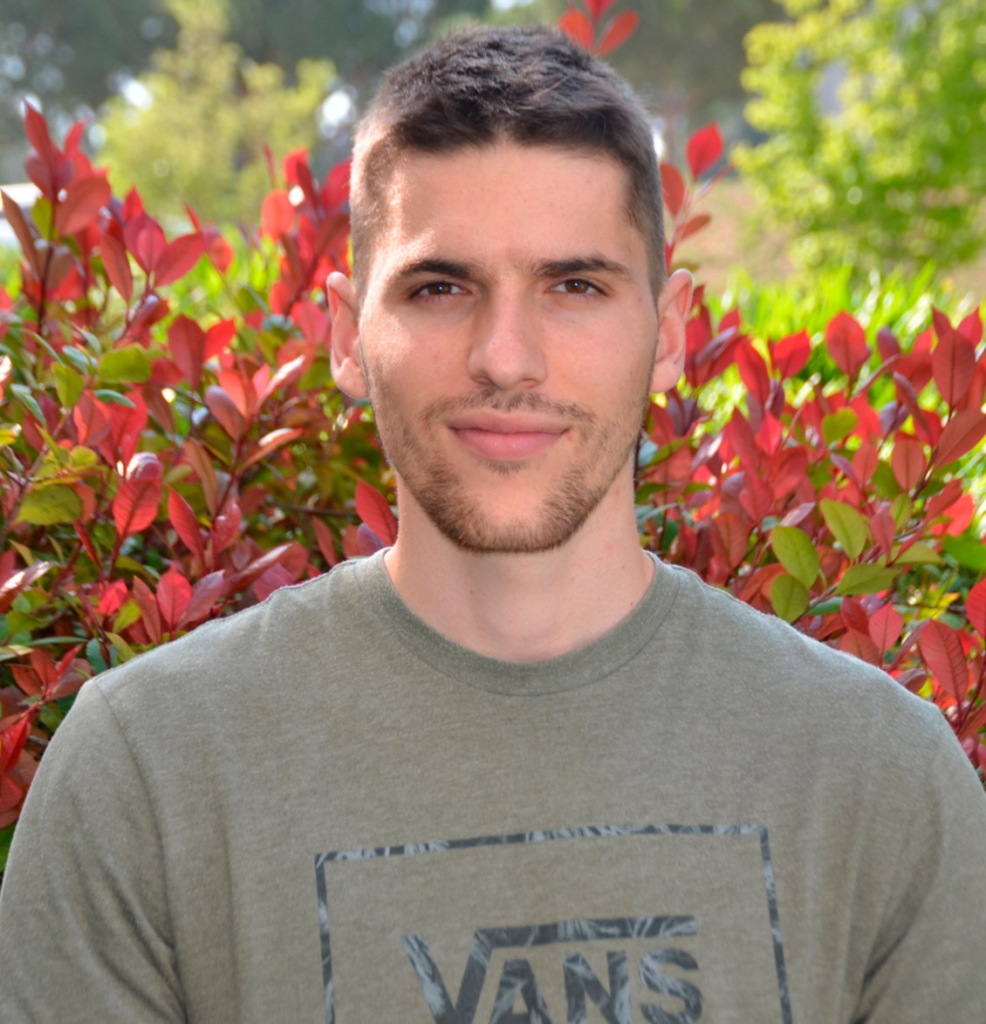
Arnau Cerqueda is a MSc in Plant Biology, Genomics and Biotechnology, Universitat Autònoma de Barcelona (UAB).
"It is the long history of humankind (and animal kind, too) that those who learned to collaborate and improvise most effectively have prevailed."
Collaborators
Following the viewpoint that "It takes two flints to make a fire" (Louisa May Alcott), we have established fruitful international collaborations resulting in several published peer-review publications:
Dr. Dario Cantu (University of California, Davis USA) -->website
Dr. Shao-shan Carol Huang (New York University, USA) -->website
Dr. Manuel Rodriguez-Concepción (Center for Research in Agricultural Genomics, Spain)
Dr. Sara Zenoni / Dr. Giovanni Battista Tornielli (University of Verona, Italy)
Dr. Jochen Bogs (COS Heidelberg – Universität Heidelberg, Germany)
Dr. Simone Castellarin (University of British Columbia, Canada) -->website
Dr. Patricio Arce-Johnson (P. Universidad Católica de Chile, Chile)
Dr. Eric Duchene (INRA Colmar, France)
Dr. Serge Delrot and Francois Barrieu (Institut des Sciences de la Vigne et du Vin, Bordeaux, France)
P A S T C O L L A B O R A T I O N S
Dr. Haiping Xin (Wuhan Botanical Garden, Chinese Academy of Sciences, Wuhan, China)
Dr. Agnès Ageorges (SupAgro, INRA Montpellier, France)
Dr. Christopher Rock (Texas Tech University, United States)
Dr. Chiara Tonelli and Dr. Massimo Galbiati (University of Milan, Italy)
With the commitment of consenting the efficient exploitation of Vitis biological resources and understanding the genetic and molecular basis of all processes in this species, the International Grapevine Genome Program (IGGP) is currently developing the GrapeIS system. This is an integrated set of interfaces supporting advanced data modeling, rich semantic integration and the next generation of data mining tools linking genotypes to phenotypes (Adam-Blondon et al. 2016). Within the same framework, the recently launched INTEGRAPE consortium (COST Action-mediated) aims to integrate data at different levels to maximize the power of omics and establish a manageable and open data platform. The initiatives mentioned here share the use of FAIR principles that ensure data are Findable, Accessible, Interoperable and Reusable (Wilkinson et al. 2016). Our team forms part of this collaborative project.

